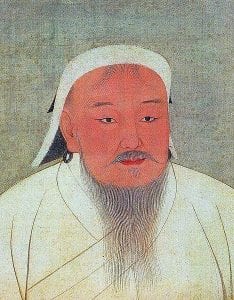
Check out podcast episode below! Who was Temujin Borjigin, born in 1162 or so on the steppes of Mongolia? How did this poor, illiterate child grow up to conquer all the countries around him? How did a lowly Mongolian herder become the greatest military genius the world has ever seen?…
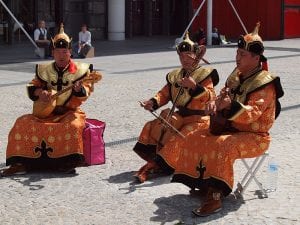
Mongol Empire art was quite sophisticated. While the Mongols didn’t produce much literature or fine art during the Mongol Empire, they appreciated and cultivated the arts of the sedentary peoples around them. The Mongol Khans became great patrons of the arts, supporting artists and artisans of all kinds. While not…
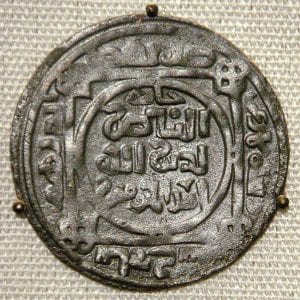
Even before the rise of Genghis Khan and the Mongol Empire, the Mongols favored trade. As a pastoral, nomadic people, their lives focused on their herds. For that reason, they made very little among themselves and Mongol trade was a cornerstone of their society. They hunted and herded, but very…
![A paiza, an official pass with Mongolian inscription reading "By the power of eternal heaven, [this is] an order of the Emperor. Whoever does not show respect [to the bearer] will be guilty of an offence."](/wp-content/uploads/2014/07/Phagspa_vinokurov_tablet-198x300.jpg)
Every empire has unusual features; the Romans, for instance, were civil engineers extraordinaire, building aqueducts and roads still in use today, thousands of years later. The Mongol Empire was noted for its sheer military power, a rapid communication system based on relay stations, paper currency, diplomatic immunity and safe travel…
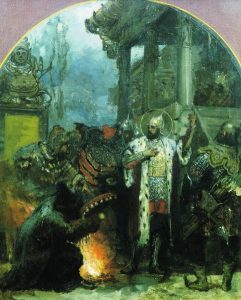
The Mongol people were Tengerians, which is a shamanist belief system. Tengerism means to honor the spirits. Shamanism is a form of animism, which holds that everything has a spiritual essence, including rocks, water and plants—everything. Humans are living spiritual creatures in a world of other spirits/forces/gods, with the Greatest…
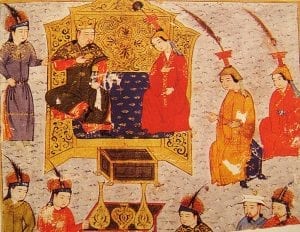
In Mongol society, men were dominant. The society was patriarchal and patrilineal. However, Mongol women had far more freedom and power than women in other patriarchal cultures such as Persia and China. While the Chinese were binding women’s feet, Mongol women were riding horseback, fighting in battles, tending their herds…
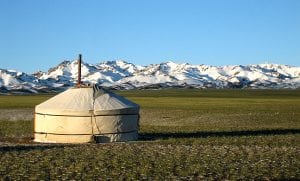
The Mongolian ger or yurt is the perfect dwelling for pastoral nomads; accordingly, they have been used for thousands of years in that part of the world. Gers are movable, can be packed up and put on a camel or oxen’s back or on a cart. Gers are lightweight but…
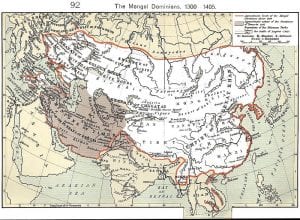
This Mongol Empire timeline features such information as the life of Genghis Khan, the major achievements of the Mongol military, and the growth of the empire and expanse of its massive trade networks. Mongol Empire Timeline 1162(?) Genghis Khan was born into the Borjigin tribe under the name Temujin. His…
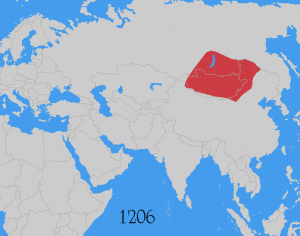
This Mongol Empire overview describes the most important aspects of this vast civilization. One empire, the largest contiguous empire in the history of the world, stemmed from the brilliant efforts and leadership of one man, Genghis Khan. Genghis, his sons and grandsons, created this fast-spreading empire which ruled from the…






![A paiza, an official pass with Mongolian inscription reading "By the power of eternal heaven, [this is] an order of the Emperor. Whoever does not show respect [to the bearer] will be guilty of an offence."](/wp-content/uploads/2014/07/Phagspa_vinokurov_tablet-198x300.jpg)







